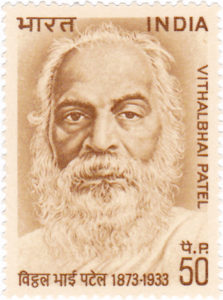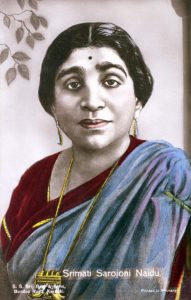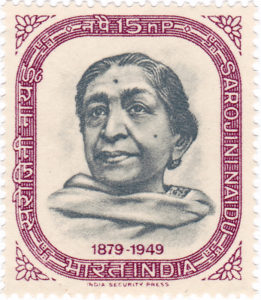By Omar Luther King
Before narrating different episodes of different political leaders who fought to win freedom for India, it has become absolutely necessary to state here that all that is written are real incidents and events that took place as told to me by by my father Maulana M. Tayyebulla of Assam, who was himself an Indian freedom fighter like all those about whom this piece is dedicated to. It is hoped that the youths of the new generation have not already forgotten them and that the great leaders will be remembered with profound love and great respect because they sacrificed their all to win freedom for the people of India. They deserve our praises not only for winning freedom for us but also for building India from its initial stage in which the British left us.
 ONE FAMILY TWO NATIONS
ONE FAMILY TWO NATIONS
When Acharya Kripalani came out of the Ahmednagar Fort, his kith and kin assembled to greet him. A wing of the same big family was Muslim, as was then well-known. Most of them were staunch Muslim Leaguers. Seeing them together, Acharya in his characteristic cryptic and cynical manner chuckled: “We belong to the same family but to two Nations!”
SAROJINI NOT A LADY
Sarojini Naidu had not reached the Congress pavilion at Gauhati (now Guwahati) in time to support Bapu’s Condolence Resolution. Bapu had finished speaking. Mahommed Ali/Muhammad Ali Jauhar (leading member of the Khilafat Movement) was in the oratorical climax of this speech when Bapu asked Maulana Tayyebulla to send for Sarojini Naidu at once.
Forgetful Naidu came running breathlessly. She was rushing through a Men’s Gate, when two volunteers – poor, simple, fresh from their village homes – came up and tried to obstruct her, saying, “Lady Gate nehi” in their newly schooled broken Hindi. The volunteers showed her the distant Ladies’ Gate. The blithe Bulbul of Hindustan simply pecked at the two on-duty volunteers and brushing them aside, she made her way. She was heard ejaculating “Silly owls (Ullu Ke Patthe)! I am not a lady.”
HOLY SECRET
An orthodox Brahmin, a Gossain thought of miserly family habits had just returned from a religious pilgrimage and was relating the common legend about the ‘Akshay Bakul’, the eternal Bakul tree of Vrindavan to a friend with a show of reverence and devotion. He narrated how Lord Shri Krishna had rubbed butter (noni) on the trunk of the Bakul tree and how the whitish dried-up butter was still intact by the grace of the Lord, round the big hollow of the Bakul.
 One day while inspecting the felling of trees T.R. Phookan suddenly came across an identical Bakul with the same hollow smeared white with noni (butter). At once he conspired to tell the devotee Gossain all about the discovery, and to show it to him.
One day while inspecting the felling of trees T.R. Phookan suddenly came across an identical Bakul with the same hollow smeared white with noni (butter). At once he conspired to tell the devotee Gossain all about the discovery, and to show it to him.
When Gossain saw the Bakul, he was awestruck and dismayed for he had throughout his life believed that the Vrindavan Bakul was by the Lord’s blessings the only Lord’s Bakul in the universe. Gossain muttered, “Ram, Ram” in bewilderment and entreated Phookan, the brother Brahmin not to divulge this to anyone but keep it between them a holy secret.
IN WOMEN’S CLOTHING
When Vithallbhai Patel was elected the first Speaker of the Indian Legislative Assembly, he had little time to make his green gown out of Khadi and the wig. The resourceful Sarojini Naidu came to his rescue. She lent two of her green Khaddar saris to be overnight tailored into the Hon’ble Speaker’s gown. Some friendly High Court Judge lent him a wig assuredly made out of Swadeshi wool.
Next morning when Vithallbhai was getting ready to go to the Assembly in his new gown and borrowed wig, he was heard gravely muttering (in Hindi) to himself that it’s a woman’s sari and a borrowed wig that have clothed this bearded masculine Speaker and made him almost a dancing Bhaloo (bear). What a calamity (musibat)!
NO GRASS-EATING
In conventional Congress style, arrangements for vegetarian food were made. At the very first meal Panditji (Jawaharlal Nehru) and Vithallbhai (Dr. Ansari, who was sick, was on barely diet) were looking at each other’s faces sheepishly and were apparently feeling somewhat uneasy over the menu. They called Maulana Tayyebulla and in some confidence, asked in a whispering tone: “Are the people here too, like C.R. and Iyyenger, all grass-eaters?”
 A non-vegetarian menu was announced for the next meal. Nehru shrugging his shoulders in his own characteristic manner laughed heartily – Vithallbhai gravely joined when the host, T.R. Phookan in great fun, declared: “No more grass-eating.” All the three master wits made the non-vegetarians roar with with laughter – Vithallbhai with an austere face intervening to say: “No more grazing here then!”
A non-vegetarian menu was announced for the next meal. Nehru shrugging his shoulders in his own characteristic manner laughed heartily – Vithallbhai gravely joined when the host, T.R. Phookan in great fun, declared: “No more grass-eating.” All the three master wits made the non-vegetarians roar with with laughter – Vithallbhai with an austere face intervening to say: “No more grazing here then!”
NEHRU AND THE OCTOPUS
After many wayside meetings, Nehru arrived at a tea-garden centre near the town of Golaghat in Upper Assam where a mammoth meeting was arranged for him. The touching of his feet by people here and there and everywhere on the way was all the time worrying him to the point of irritation. At the close of his speech before resuming his seat on the rostrum, Nehru made an appeal to the people, fretting querulously: “Main koyee sadhu koyee dharamguru, avatar nahin hoon, paer pakarne se mujhe ranj hota hai.” (In English: “I am no saint, no priest, no incarnation – feet-touching distresses me.”)
A septuagenarian village elder, a simple Barsaikia, who did not know what was said, instantly came up and fell flat in Pranipat before the idol and reverently touched his feet and felt himself glorified. The frowning idol fitfully flared up: “Yeh kya wahiat?” (“What’s all this nonsense?”)
What did the devotee Barsaikia understand of Nehru’s urdu ‘wahiat’? He clasped both the legs of his god. The furious flesh-and-blood deity freed himself from the octopus and jumping down from the high rostrum directly to the ground, made his way hurriedly to the waiting car – fretting, fuming and murmuring.
Awestruck Barsaikia was up on his feet on the dais by the time his modern Krishna Kanu climbed the Kadamba tree – in modern civilised parlance, the limousine. The devotee was seen casting a beholding, lingering look at his Bhooban-Mohan.
THE TWIN GHOSTS
A Veteran of the 1905 Anarchist Movement and a national poet of great repute Ambikagiri Roy Chaudhury came to Delhi to represent the Asom Jatiya Mahasabha’s views. He presented his one-sheet memorandum to the Sardar. As Vallabhbhai was glancing through it, he was told about Roy Chaudhury’s decision to fast unto death with his whole family if Assam was compelled to go to the ‘Pakistan group’.
Vallabhbhai, a master-wit who remains grave when he makes all break their ribs, intervened, “Tayyebulla Sahab, Bapu se mat kaho. Who inko rok lenge.” (“T S, don’t tell Bapu. He will stop him.”) Turning to Roy Chaudhury, he continued: “Fast Karo, zaroor karo, aisey jageh chale jaogey ki pata nahin chalega wahan Assam mein grouping hua ya nahin hua.” (“Fast, fast to be sure, and you will go to such a bourne where you will not know whether Assam has gone to the grouping or not.”)
The twin ghosts of ‘grouping’ and Pakistan are no more there to beckon and lure Bapu’s “Lovely Assam”. At last the tragedy blended into the comedy. All’s well that ends well.



